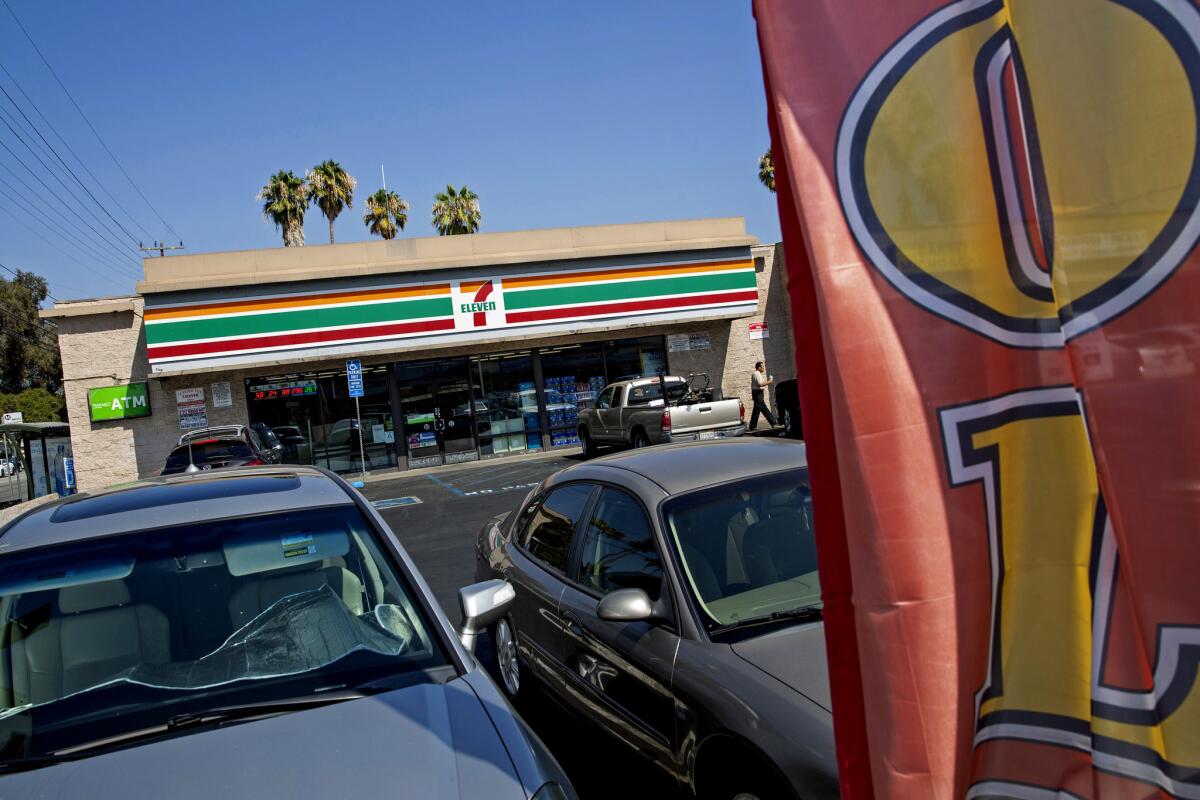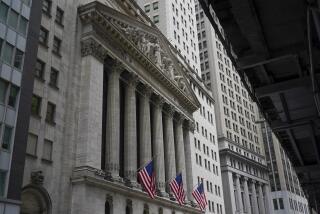Big companies shake off recession and pandemic to resume mergers and acquisitions

- Share via
A series of blockbuster deals has led a resurgence in merger and acquisition activity since the start of July, with companies rushing to prepare themselves for the recession and dusting off deals that were shelved because of the pandemic.
Eight deals of more than $10 billion have been signed in the past six weeks, according to Refinitiv data, making it the fastest start to the second half for megadeals since 2007 when there was a merger and acquisitions boom before the financial crisis.
The list of deals includes the $21-billion sale of Marathon Petroleum’s Speedway gas stations business to Seven & i Holdings, the Japanese owner of the 7-Eleven convenience store chain. It also includes Analog Devices’ $20-billion deal to buy rival chipmaker Maxim Integrated Products.
“This is pretty extraordinary with respect to how this bounce-back has happened,” said Michael Carr, co-head of global mergers and acquisitions at Goldman Sachs.
The COVID-19 pandemic brought a six-year deal-making boom to a halt. Corporate leaders put transactions on hold to concentrate on shoring up operations, while activist investors kept a low profile for fear of a backlash if they pushed for changes in the midst of a health crisis.
As share prices have recovered, many of the deals contemplated earlier this year are back on track.
Monthly Refinitiv data show June and July each registered more than $300 billion in overall M&A activity, compared with $100 billion in April and $130 billion in May.
“The backlog is very busy and I would expect things to continue, barring a major event that brings things to a halt,” said Alison Harding-Jones, head of mergers and acquisitions for Europe, the Middle East and Africa at Citigroup.
“The kind of transactions we expect to see are big strategic takeovers, share-for-share deals among companies in the hardest-hit industries and an increasing number of private equity bids,” she said.
Some companies are looking to strike deals that will help them weather a tougher economic climate, said Nestor Paz-Galindo, global co-head of mergers and acquisitions at UBS.
“People are thinking about how to build scale and resilience, and that is a driver of M&A,” he said. All-stock deals that “you would never have done” when share prices tumbled in April have become easier since stocks have bounced back.
Most of the largest deals involved U.S.-based companies. The biggest European-led deal was German group Siemens Healthineers’ $16.4-billion agreement to buy U.S.-based Varian Medical Systems, which makes devices for cancer treatments.
Blair Effron, co-founder of Centerview Partners, was more cautious. “The issue right now is that the ability to get comfortable enough to make a big bet in a non-face-to-face environment has shrunk,” Effron said.
“Transformational deals will pick up as the health crisis recedes,” he added.
Although big deals have recovered, the pandemic derailed several major transactions agreed to before the crisis. Others are in trouble, such as the planned $12.6-billion takeover of Dutch diagnostics group Qiagen by its larger U.S.-based rival Thermo Fisher Scientific.
Thermo Fisher needs support from two-thirds of Qiagen’s investors by Monday evening to seal the deal. But a series of hedge funds are holding out from voting their shares in favor of the deal, arguing that demand for Qiagen’s COVID-19 research test kits means that Thermo Fisher’s offer undervalues the company.
© The Financial Times Ltd. 2020. All rights reserved. FT and Financial Times are trademarks of the Financial Times Ltd. Not to be redistributed, copied or modified in any way.
More to Read
Inside the business of entertainment
The Wide Shot brings you news, analysis and insights on everything from streaming wars to production — and what it all means for the future.
You may occasionally receive promotional content from the Los Angeles Times.










